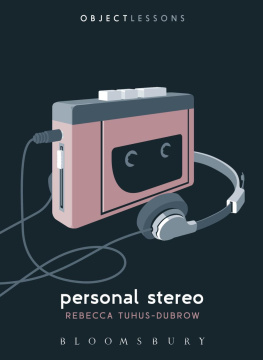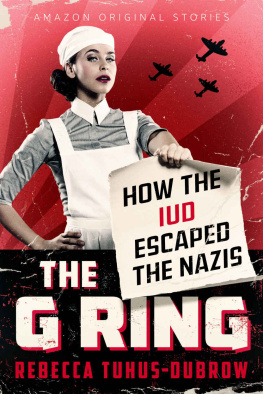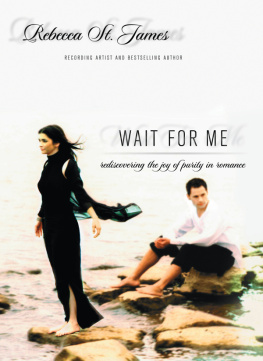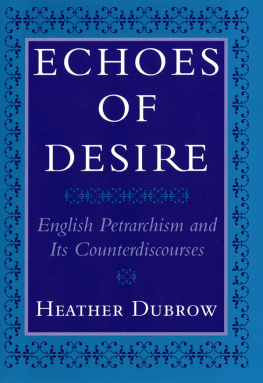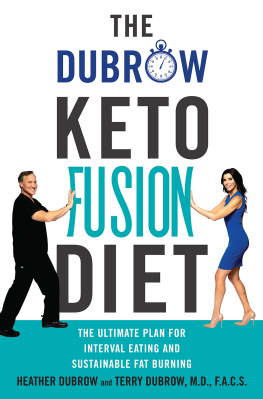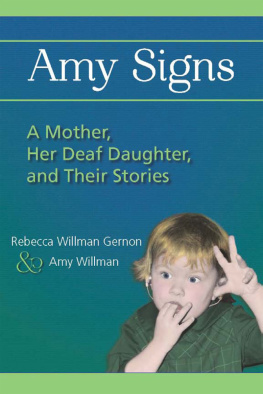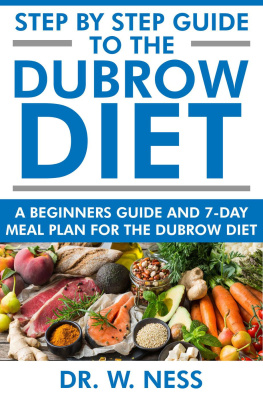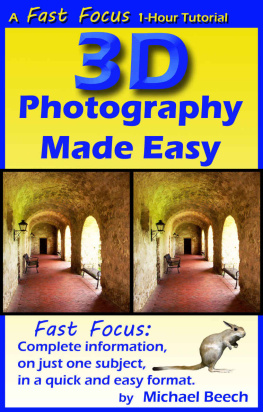Rebecca Tuhus-Dubrow - Personal Stereo
Here you can read online Rebecca Tuhus-Dubrow - Personal Stereo full text of the book (entire story) in english for free. Download pdf and epub, get meaning, cover and reviews about this ebook. year: 2019, publisher: Bloomsbury USA, genre: Detective and thriller. Description of the work, (preface) as well as reviews are available. Best literature library LitArk.com created for fans of good reading and offers a wide selection of genres:
Romance novel
Science fiction
Adventure
Detective
Science
History
Home and family
Prose
Art
Politics
Computer
Non-fiction
Religion
Business
Children
Humor
Choose a favorite category and find really read worthwhile books. Enjoy immersion in the world of imagination, feel the emotions of the characters or learn something new for yourself, make an fascinating discovery.
- Book:Personal Stereo
- Author:
- Publisher:Bloomsbury USA
- Genre:
- Year:2019
- Rating:5 / 5
- Favourites:Add to favourites
- Your mark:
- 100
- 1
- 2
- 3
- 4
- 5
Personal Stereo: summary, description and annotation
We offer to read an annotation, description, summary or preface (depends on what the author of the book "Personal Stereo" wrote himself). If you haven't found the necessary information about the book — write in the comments, we will try to find it.
Personal Stereo — read online for free the complete book (whole text) full work
Below is the text of the book, divided by pages. System saving the place of the last page read, allows you to conveniently read the book "Personal Stereo" online for free, without having to search again every time where you left off. Put a bookmark, and you can go to the page where you finished reading at any time.
Font size:
Interval:
Bookmark:

The Object Lessons series achieves something very close to magic: the books take ordinaryeven banalobjects and animate them with a rich history of invention, political struggle, science, and popular mythology. Filled with fascinating details and conveyed in sharp, accessible prose, the books make the everyday world come to life. Be warned: once youve read a few of these, youll start walking around your house, picking up random objects, and musing aloud: I wonder what the story is behind this thing?
Steven Johnson, author of Where Good Ideas Come From and How We Got to Now
Object Lessons describes themselves as short, beautiful books, and to that, Ill say, amen.... If you read enough Object Lessons books, youll fill your head with plenty of trivia to amaze and annoy your friends and loved onescaution recommended on pontificating on the objects surrounding you. More importantly, though... they inspire us to take a second look at parts of the everyday that weve taken for granted. These are not so much lessons about the objects themselves, but opportunities for self-reflection and storytelling. They remind us that we are surrounded by a wondrous world, as long as we care to look.
John Warner, Chicago Tribune
In 1957 the French critic and semiotician Roland Barthes published Mythologies , a groundbreaking series of essays in which he analysed the popular culture of his day, from laundry detergent to the face of Greta Garbo, professional wrestling to the Citron DS. This series of short books, Object Lessons, continues the tradition.
Melissa Harrison, Financial Times
Though short, at roughly 25,000 words apiece, these books are anything but slight.
Marina Benjamin, New Statesman
The Object Lessons project, edited by game theory legend Ian Bogost and cultural studies academic Christopher Schaberg, commissions short essays and small, beautiful books about everyday objects from shipping containers to toast. The Atlantic hosts a collection of mini object-lessons.... More substantive is Bloomsburys collection of small, gorgeously designed books that delve into their subjects in much more depth.
Cory Doctorow, Boing Boing
The joy of the series... lies in encountering the various turns through which each of the authors has been put by his or her object. The object predominates, sits squarely center stage, directs the action. The object decides the genre, the chronology, and the limits of the study. Accordingly, the author has to take her cue from the thing she chose or that chose her. The result is a wonderfully uneven series of books, each one a thing unto itself.
Julian Yates, Los Angeles Review of Books
... edifying and entertaining perfect for slipping in a pocket and pulling out when life is on hold.
Sarah Murdoch, Toronto Star
... a sensibility somewhere between Roland Barthes and Wes Anderson.
Simon Reynolds, author of Retromania: Pop Cultures Addiction to Its Own Past
Object lessons
A book series about the hidden lives of ordinary things.
Series Editors:
Ian Bogost and Christopher Schaberg
Advisory Board:
Sara Ahmed, Jane Bennett, Jeffrey Jerome Cohen, Johanna Drucker, Raiford Guins, Graham Harman, rene hoogland, Pam Houston, Eileen Joy, Douglas Kahn, Daniel Miller, Esther Milne, Timothy Morton, Kathleen Stewart, Nigel Thrift, Rob Walker, Michele White.
In association with


Books in the series
Remote Control by Caetlin Benson-Allott
Golf Ball by Harry Brown
Drivers License by Meredith Castile
Drone by Adam Rothstein
Silence by John Biguenet
Glass by John Garrison
Phone Booth by Ariana Kelly
Refrigerator by Jonathan Rees
Waste by Brian Thill
Hotel by Joanna Walsh
Hood by Alison Kinney
Dust by Michael Marder
Shipping Container by Craig Martin
Cigarette Lighter by Jack Pendarvis
Bookshelf by Lydia Pyne
Password by Martin Paul Eve
Questionnaire by Evan Kindley
Hair by Scott Lowe
Bread by Scott Cutler Shershow
Tree by Matthew Battles
Earth by Jeffrey Jerome Cohen and Linda T. Elkins-Tanton
Traffic by Paul Josephson
Egg by Nicole Walker
Sock by Kim Adrian
Eye Chart by William Germano
Whale Song by Margret Grebowicz
Tumor by Anna Leahy
Jet Lag by Christopher J. Lee
Shopping Mall by Matthew Newton
Personal Stereo b y Rebecca Tuhus-Dubrow
Veil by Rafia Zakaria
Burger by Carol J. Adams (forthcoming)
High Heel by Summer Brennan (forthcoming)
Luggage by Susan Harlan (forthcoming)
Toilet by Matthew Alastair Pearson (forthcoming)
Souvenir by Rolf Potts (forthcoming)
Rust by Jean-Michel Rabat (forthcoming)
Blanket by Kara Thompson (forthcoming)
personal stereo
Rebecca Tuhus-Dubrow
Bloomsbury Academic
An imprint of Bloomsbury Publishing Inc

Contents
I am grateful to have Sarah Burnes on my team. Chris Schaberg gave me astute edits and unflagging encouragement. Haaris Naqvi proved exceptionally gracious and skilled at ushering this book into existence. Thanks to all of you, as well as Ian Bogost, for your support. Thanks to Alice Marwick for the classy cover design. Thanks to Susan Clements and Anita Singh.
The Forum for the Academy and the Public and the Newkirk Center for Science and Society, both at UC Irvine, provided me with support during the writing process. I am indebted to the journalists who wrote the articles on which much of my research drew. And for all my kvetching about the internet, this book could not have been written without it.
A number of friends and friends of friends helped by sharing their Walkman memories. Thanks to all of you; even if your story did not appear, it informed this book. Thanks to Cascade Sorte for lending me her Walkman, and to John Palattella for later giving me one. Thanks to Andreas Pavel for patiently answering my many questions. Thanks to Keith Beresford for helping me track down Andreas Pavel. Thanks to Thomas Laemmel and Ryoichi Numata of Sony for taking the time to respond to my inquiries.
Jeff Wasserstrom, Jack Lerner, and Barry Siegel offered helpful comments on parts of this book and/or gave me leads on Walkman arcana. Evan Kindley alerted me to the Object Lessons series and provided valuable guidance throughout this process.
Since around the time I started listening to a Walkman, Rosalie Metros wisdom has enriched my writing and my life. Mark Engler has provided incisive feedback on nearly everything Ive written for publication, including this book.
Thanks to Melinda Tuhus and Robert Dubrow for your loving support and profound integrity; Daniel Tuhus-Dubrow for your good heart and dry wit; and Jane and Paul Marantz for your generosity and lan.
Thanks to Eliza for being your sweet and spunky self. Thank you, Nicholas, for, among many other gifts, the laughs.
In 2009, the BBC News Magazine asked Scott Campbell, a 13-year-old boy, to temporarily trade his iPod for a Walkman and report his impressions. The occasion was the thirtieth anniversary of the Walkmans launch, and Campbell obliged.
His dad had told him it was big, Campbell wrote, but I hadnt realised he meant THAT big. He went on to note that the device was heavy and cumbersome, and that when he wore it in public, he got strange looks and felt embarrassed.
Font size:
Interval:
Bookmark:
Similar books «Personal Stereo»
Look at similar books to Personal Stereo. We have selected literature similar in name and meaning in the hope of providing readers with more options to find new, interesting, not yet read works.
Discussion, reviews of the book Personal Stereo and just readers' own opinions. Leave your comments, write what you think about the work, its meaning or the main characters. Specify what exactly you liked and what you didn't like, and why you think so.

